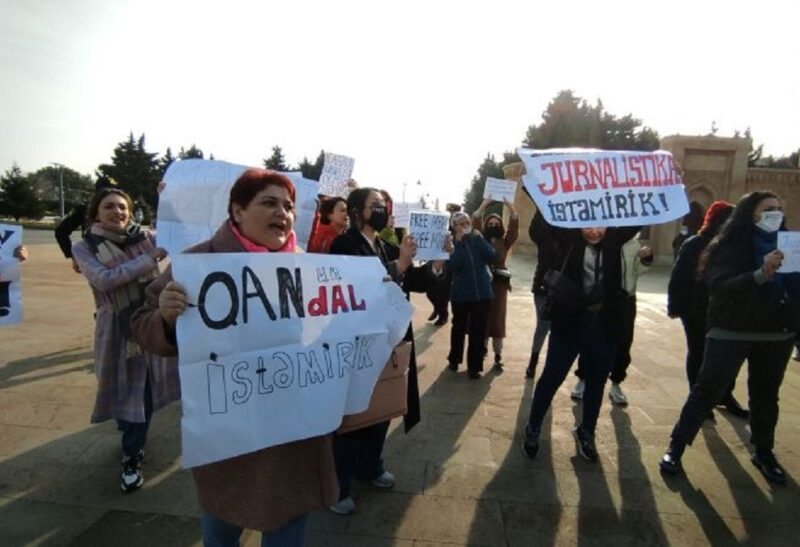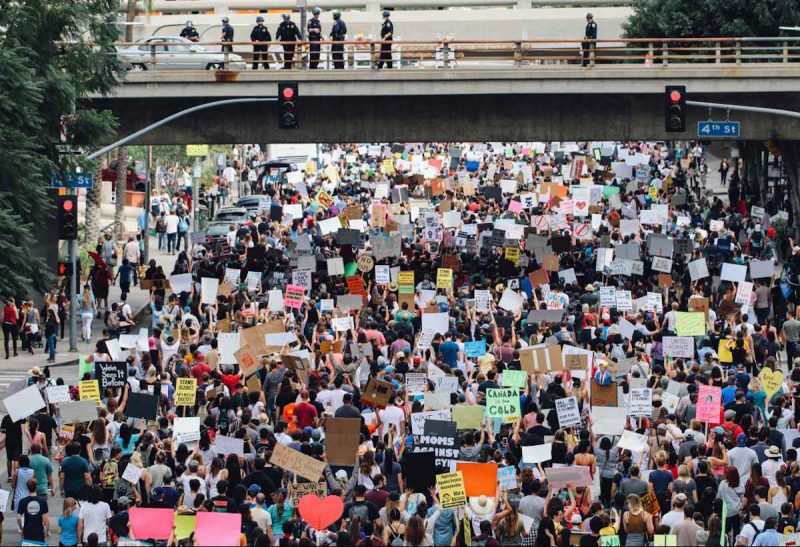Violent clashes erupted between local residents and special police troops in Nardaran, 20 miles northeast of Baku, on Wednesday (November 26), after police launched a sudden raid in the village, causing 7 deaths in total.
At least 14 local residents, including popular theologian
Haji Taleh Bahirzade
, were detained as part of an investigation into an alleged plot to overthrow the ruling government.
But there are growing concerns that the fatal police raid in a deeply and openly religious town of around 8,000 people could signal the start of a new crackdown.
“Nardaran unrest should be a wake-up call for many [in Azerbaijan,] especially for the country’s authoritarian government,” a western diplomat, who served in Azerbaijan until last summer, said on condition of anonymity.
“In support of freedom of assembly, we – the Western countries – repeatedly encouraged Azeri officials to peacefully resolve tensions with the villagers of Nardaran,” the source added.
Known for its religiosity, Nardaran is the historic center of conservative Shi’a Islam in Azerbaijan. The town has been the scene of regular political, social and religious protests over the past decade, in which demonstrators even burned U.S. and Israeli flags.
Officials in Baku insist that the latest tension is “being provoked by Islamic radicals.” Observers, however, maintain that police attacked a peaceful prayer meeting. They also argue that economic and political factors have been a major source of dissatisfaction fueling other problems.
That said, the latest clash could be compared with a fatal standoff in the village in summer 2002, when more than dozen Nardaranians suffered gunshot wounds, and one died during a police raid on protesters.
The town has long been a flashpoint of tension as residents raised their voices over poor living standards, lack of jobs, and social services. In its response, the government has blamed radical religious groups allegedly linked to Iranian conservative clerics.
Local residents believe that last week’s police raid was aimed at detaining theologian Haji Taleh Bahirzade, an alleged leader of the public organization Muslim Unity. Police in turn say the operation was designed to arrest, as they put it, “suspected elements.”
A joint statement released by the Interior Ministry and the Prosecutor-General’s Office on Saturday says Bahirzade and his movement for Muslim Unity aimed to overthrow the constitutional order and establish “a religious state under Shari’a law.” The statement also claimed that Bahirzade and his followers conducted “illegal meetings” in Nardaran to discuss mobilizing the population in a violent uprising against the authorities.
The gathered group, reads the statement, “met security forces with armed resistance,” forcing them to resort to truncheons and guns loaded with rubber bullets.
Eyewitnesses, however, claim that police officers started beating people and firing into the air immediately after entering a house in Nardaran where a group of residents gathered for a regular prayer.
Following the clashes, police cordoned off Nardaran, preventing residents from leaving the town and cut off power, phone, Internet and other communications.
The village elders on Sunday called for an investigation into the raid and demanded the return of the bodies of the deceased.
Opposition leaders have criticized the government for attacking its own citizens while refusing to heed their long-standing complaints. They have also dismissed official reports that the residents are linked to Iran and seek a religious state under Shari’a law.
Observers believe that the Aliyev government wouldn’t hesitate to stigmatize political enemies as Islamic fundamentalists to justify its ongoing crackdown against independent voices. The law, they say, should punish actual violence, not ideas or peaceful religious practice.
With its poor human rights record and corruption along with a tidal wave of misspent oil wealth rolling in, Azerbaijan, in theory, seems like fertile ground for an Islamic surge. As in many countries, there are some radical Islamists, but the government has not found effective ways of dealing with that problem.
Unfortunately, we now seem set for another spate of violence. The methods used today by the Aliyev government are literally identical to those tried by the Azerbaijani state in the past. But if the Nardaran problem could be solved with violence, such as sudden police raids, it would have been solved years ago.
In June 2002, President Haydar Aliyev sent a delegation to negotiate with the Nardaran representatives in response to unrest. During those negotiations, the villagers made certain demands, including the release of the arrested villagers, and removal of the police cordon around the town. As reported, the senior Aliyev initially agreed to meet their demands. However, later the government launched another raid in the village.
Azerbaijani officials love linking Nardaran to Iranian conservative clerics who orchestrated the Islamic Revolution in 1979. But even that doesn’t deter the government from repeating Shah Pahlavi’s mistakes while addressing the village’s problems, causing concerns about the rise of unrest and its possible expansion to other parts of the country.
Unless the government changes its iron-fist policy and addresses major socio-economic and political issues, Azerbaijan will likely head towards political uncertainty.
A. Raufoglu is a Washington, DC-based Azerbaijani journalist and researcher with a focus on Caucasus and the wider Black Sea regions. Follow him on Twitter @ralakbar
The views expressed in this article are the author’s own and do not necessarily reflect Meydan TV’s editorial policy.



